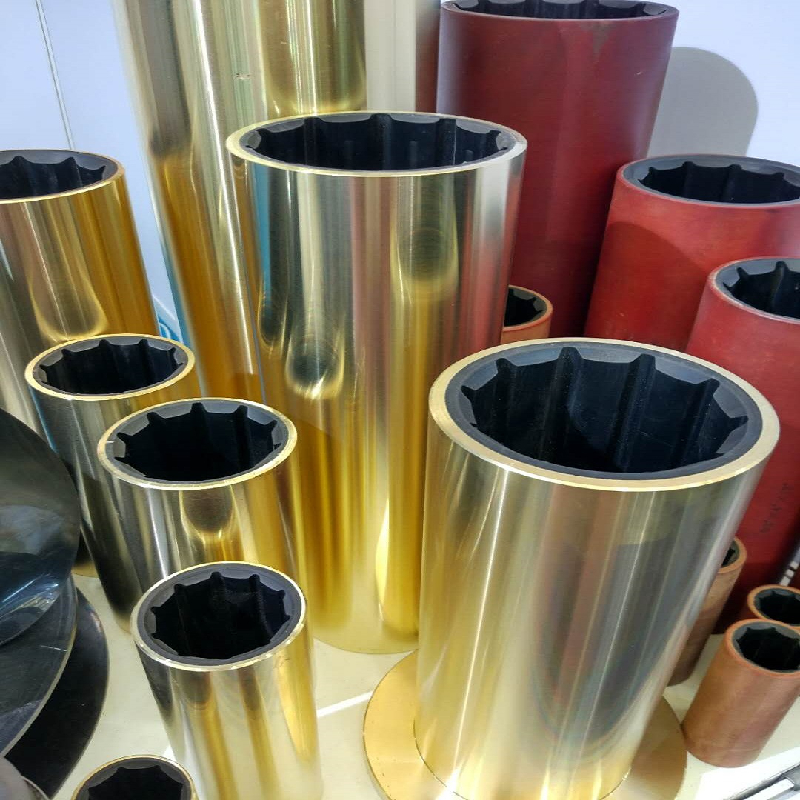flat sheet gasket
Understanding Flat Sheet Gaskets Functions, Materials, and Applications
Flat sheet gaskets are essential components in various industries, primarily serving as sealing solutions between two or more surfaces to prevent leaks of fluids or gases. They play a critical role in the integrity and efficiency of numerous systems, including automotive, aerospace, chemical processing, and HVAC applications. This article delves into the functions, materials, and applications of flat sheet gaskets, highlighting their significance in engineering.
Functions of Flat Sheet Gaskets
At the core of a flat sheet gasket's functionality is its ability to create a tight seal when compressed between mating surfaces. This compression allows the gasket to deform slightly, filling in any microscopic irregularities of the surfaces, which prevents the escape of liquids or gases. Flat gaskets are particularly advantageous in high-pressure or high-temperature environments where maintaining a seal is crucial for operational safety and efficiency.
Materials Used in Flat Sheet Gaskets
Flat sheet gaskets are made from a variety of materials, each offering unique properties that cater to specific environmental conditions. Common materials include
- Rubber Natural or synthetic rubber gaskets are flexible and have good resistance to water, oil, and various chemicals. They are widely used in plumbing and automotive applications.
- Compressed Non-Asbestos Fiber (CNAF) These gaskets are made from synthetic fibers and additives, providing strength and resistance to heat and chemicals. They are often used in industrial applications.
flat sheet gasket

- PTFE (Polytetrafluoroethylene) Known for its outstanding chemical resistance and low friction properties, PTFE gaskets are ideal for corrosive environments, often found in the pharmaceutical and food processing industries.
- Metal Flat sheet gaskets made from metals like stainless steel or copper provide excellent durability and can withstand extreme temperatures and pressures. They are commonly used in flange applications.
Applications of Flat Sheet Gaskets
The applications of flat sheet gaskets are extensive. In the automotive industry, they are utilized in engines, transmissions, and exhaust systems to prevent fluid leaks. In the aerospace sector, gaskets are used in fuel systems and hydraulic applications, where reliability is paramount. Chemical processing plants rely on flat gaskets to ensure safety and efficiency in transporting hazardous materials.
Moreover, HVAC systems use flat gaskets to maintain air integrity and prevent energy loss. The versatility and adaptability of these gaskets make them indispensable in virtually any scenario where a reliable seal is required.
Conclusion
In conclusion, flat sheet gaskets serve a critical function across a myriad of industries, ensuring that systems operate effectively and safely. Their diverse range of materials allows for tailored solutions suited to specific needs, making them a vital aspect of engineering design and maintenance. As technology advances, the development of new materials and designs will likely enhance the effectiveness of flat sheet gaskets, making them even more integral to modern industry.
-
Understanding the Front Main Engine Seal: Purpose, Maintenance, and Installation
News Jul.29,2025
-
Understanding O-Rings and Seal Rings: Types, Applications, and Custom Solutions
News Jul.29,2025
-
Understanding Crankshaft Oil Seals: Rear Seals, Pulley Seals, and Their Role in Engine Integrity
News Jul.29,2025
-
The Importance of Front and Rear Crankshaft Seals in Engine Performance and Oil Management
News Jul.29,2025
-
Crank Oil Seals: Functions, Types, and Cost Considerations in Engine Maintenance
News Jul.29,2025
-
A Comprehensive Guide to O-Rings and Seals: Types, Materials, and Global Applications
News Jul.29,2025
-
Mastering Diesel and Performance Engine Maintenance: A Guide to Critical Oil Gaskets
News Jul.28,2025
Products categories















